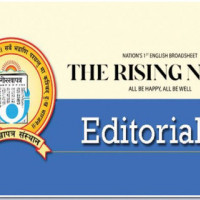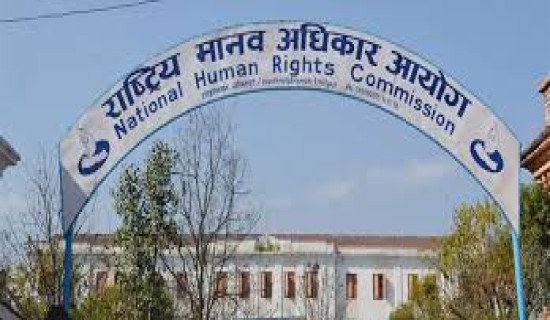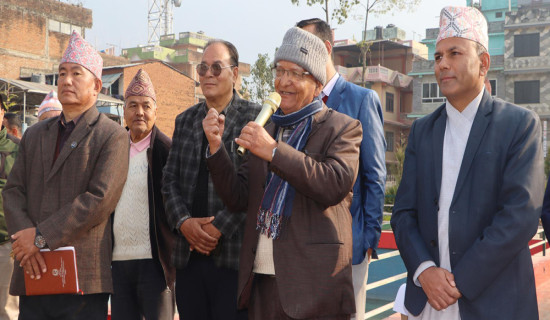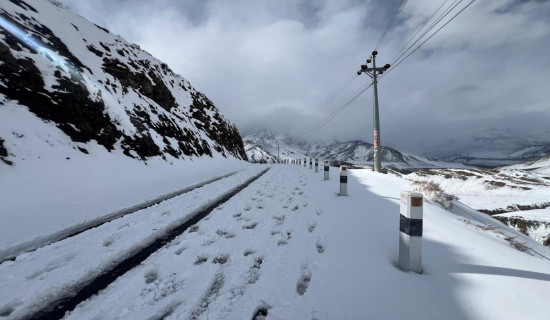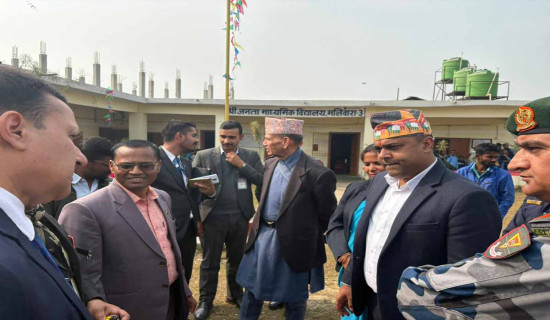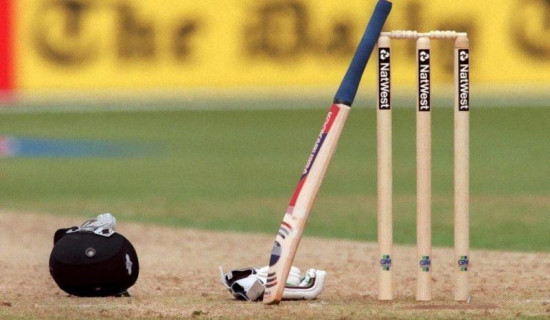- Thursday, 29 January 2026
Badi Community's Plight
When the natural disasters like earthquakes, floods and landslides strike the country, it is the poor and the marginalised who suffer the most. Entrenched social discriminations and economic inequality have forced them into penury for centuries. As the calamities befall them, their situation turns worse from bad. This is what exactly happened to the Badi community living in Jajarakot district. Last year’s earthquake knocked down their homes in the Ramidanda area of Barekot Rural Municipality-1, further exacerbating their problems. The government provided a grant of Rs. 25,000 to each family for temporary housing.
Since then, approximately 45 Badi households have been living in makeshift shelters on the banks of the Nalsingad River of Dalli in Nalgad Municipality-7. The land they are living on belongs to the Nalgad Hydropower Project in Karnali Province. They have been struggling to survive in the harsh winter season. They rely on fishing, gravel collection and labour-intensive job for their daily livelihood for survival, a practice passed down from their ancestors.
The Badi community have scattered in Sudurpaschaim, Karnali and Lumbini provinces. The country witnessed major political changes, the governance system changed from a unitary to a federal republican one but the hardships faced by this community has not decreased significantly. The government needs to make an intervention and introduce programmes to improve the quality of their lives. People from this community are still away from the social mainstream and their voices are unheard. Social activists like Uma Badi fought relentlessly demanding permanent shelter, birth registration and citizenship in the name of the mothers to establish the rights of the Badi people and uplift their socio-economic conditions. However, it seems she is fighting a losing battle as her demands are still unmet.
According to the National Population and Housing Census, 2021, the population of the Badi community is 11,470. The mortality rate among children in the community is high, as they lack the basic amenities of life, including proper housing, food supply, clean water, health care and education. Children, elderly and pregnant women are at high risk. The young people, including school-going children quit their study and go to India as menial labourers. On January 7, 2007, following the demonstration by the Badi community, the government promised them land and training to develop income-generating skills as a means to rehabilitate this community.
However, the promises hardly materialised, and the community is still living a life full of hardship. It now feels neglected by the state and the distribution of the state's resources fail to reach them. Being one of the poorest and most marganilised Dalit communities, the Badi people have been facing discrimination and hardships for ages. The government should work for their education, capacity development, skill development, adequate housing and health care. The local governments where these communities inhabit, too, should work for their welfare, launching special programmes to uplift their conditions and ensure their dignified life.







